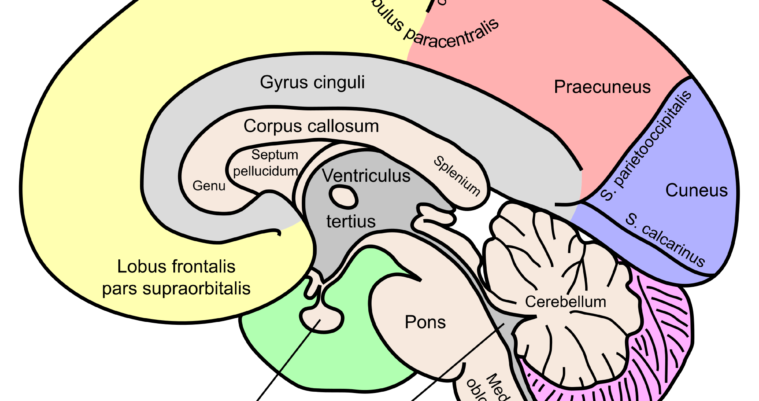Answers to Your Questions About TBI Cases
TBI Cases (Traumatic Brain Injury)
A traumatic brain injury or “TBI” can have a devastating impact on the victim, as well as the victim’s family and loved ones. These injuries manifest themselves through a variety of symptoms, ranging from mild to severe, and invariably result in long-term impacts on the victim’s health and well-being. In this article, we’ll answer some basic questions about TBI. IF you would like more detailed information, our experienced traumatic brain injury lawyers will be happy to talk with you.
What is a Traumatic Brain Injury (TBI)?
As the name suggests, a traumatic brain injury is an injury to the brain resulting from trauma (either internally or externally) to the victim’s head. Most TBI are closed-head injuries and do not involve direct penetration of the head, skull, or brain. However, the trauma associated with a closed-head injury can jostle the brain, causing it to make direct contact with the front and/or back of the skull. From a medical standpoint, this movement can damage the brain’s neurons and axons (which are the equivalent of the brain’s “internal wiring”), and can prevent them from functioning properly, thereby producing short- and long-term symptoms.
What are Some of the Causes of TBI?
Common causes of traumatic brain injuries are:
- Car accidents;
- Motorcycle accidents (particularly where the injured person is not wearing a helmet);
- Boating accidents;
- Pedestrian accidents;
- Sledding and skiing accidents;
- Slip-and-fall accidents; and
- Sports-related accidents and injuries (usually contact sports, such as football or basketball).
In the case of motor vehicle accidents, for example, traumatic brain injuries are usually sustained when the injured person's vehicle accelerates or decelerates very quickly, causing the person’s head to come into direct contact with the steering wheel, headrest, dashboard or some other part of the interior of the vehicle. It is important to note, too, that a person may suffer a brain injury even if he doesn’t strike his head. Any sudden and severe movement of the head and neck (e.g., the whiplash effect that occurs when a car is rear-ended), can cause the brain to strike the interior of the skull, resulting in TBI.
What are Common Symptoms of TBI?
Symptoms associated with traumatic brain injuries may manifest themselves immediately or may not manifest for several days, weeks, or even months after the person sustains the injury. Consequently, these injuries can be difficult to detect, diagnose, and treat. Symptoms of a traumatic brain injury can range from mild to severe.
Common symptoms associated with
mild TBI include:
- Feelings of confusion or disorientation;
- Lightheadedness;
- Blurred vision;
- Difficulty sleeping;
- Headaches;
- Aversion to light and sound; and
- Difficulty concentrating.
Insurance companies and their attorneys often try to characterize traumatic brain injuries as "mild," and try to make it sound as though a “mild” traumatic brain injury cannot lead to any long-term or permanent symptoms. Nothing could be further from the truth. Even so-called “mild” traumatic brain injuries can permanently damage the brain’s internal hardware, producing real, significant, and often long-term symptoms. More importantly, the injured person may not even know how badly he or she is hurt until well after the accident occurred, due to a late onset of these symptoms. If you believe that you have sustained a traumatic brain injury, it is essential that you seek medical treatment as soon as possible.
Symptoms commonly associated with more
severe TBI include:
- Loss of consciousness;
- Long-term memory loss;
- Loss of smell or taste senses;
- Seizures;
- Slurred speech; and
- Radical mood swings.
Severe TBI is likely to have long-term repercussions on both the accident victim and on the victim’s family and loved ones. Depending upon the severity of the victim’s injuries, a guardian may need to be appointed to act on behalf of the injured person and make legal decisions for him or her. Because these severe traumatic brain injuries are often the result of serious motor vehicle or other types of accidents, insurance companies have more of an incentive to settle, given the extent of the injuries, their permanency, and the potential sympathy factor, should the case ever come to be tried before a jury.
How can a Traumatic Brain Injury Lawyer Help Me?
The key to obtaining a substantial settlement or verdict in a traumatic brain injury case is to retain a compassionate lawyer who handles these types of cases on a regular basis and who is familiar with the anatomy and physiology of the human brain. An experienced traumatic brain injury lawyer will also have a working relationship with healthcare providers and other experts who may serve as potential witnesses, should the case ever need to be tried. These experts can be especially helpful in proving permanency or lost earning capacity, since these types of damages are subjective. Finally, an experienced traumatic brain injury lawyer will know how to best present your case to the trier-of-fact (usually the jury) in a meaningful way.
If you would like talk with an experienced traumatic brain injury lawyer about your particular situation, please contact us. You can reach us by phone or by submitting the contact form on this page. We will respond promptly.
J. Price McNamara
Attorney
Losing my own brother, then my father and sister after long, disabling illnesses just a few months apart drove a career change for me. Before that experience, I never truly understood the place you’re in. I never understood the dramatic impact that receiving (or not receiving) the disability and life insurance benefits you paid for and counted on can have on your life especially when you need to focus on family and healing. What I experienced with my own family now drives the way I view my clients and my work, and I will never forget it!
Author's Bio



